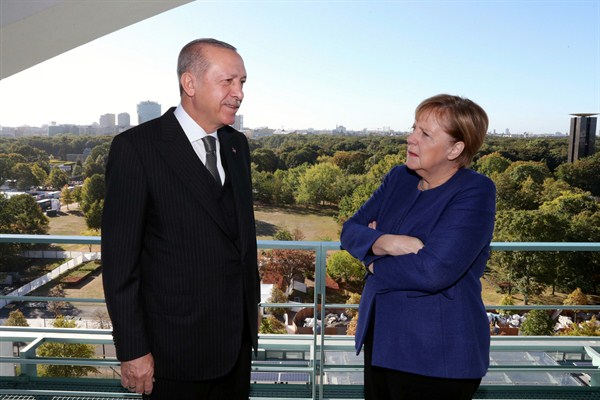Turkish President Recep Tayyip Erdogan’s state visit to Berlin last month came at a turbulent time for both Turkey’s relationship with Germany and Erdogan’s personal relationship with German Chancellor Angela Merkel. While the visit has been billed as a sign of rapprochement, the reality is that Germany and Turkey need each other and are willing to work together on a transactional basis despite persistent irritants in the bilateral relationship. In an email interview with WPR, Lisel Hintz, assistant professor of international relations at the Johns Hopkins School of Advanced International Studies, discusses the backdrop to Erdogan’s visit and how it served to advance both German and Turkish interests.
World Politics Review: How has Germany’s relationship with Turkey evolved during the chancellorship of Angela Merkel?
Lisel Hintz: Turkey’s relationship with Germany has been extraordinarily and unprecedentedly turbulent under Angela Merkel’s leadership, although nowhere near all of the blame for this rests with her. Of her contributions to this dynamic, the first and perhaps most influential on the course of bilateral relations—and Turkey’s relations with the European Union—was her position upon being elected chancellor in 2005 that Turkey should only be considered for privileged status within the EU, rather than full membership. Merkel’s stance, shared by former French President Nicolas Sarkozy even after Turkey’s formal accession negotiations had begun, implied that even if Turkey fulfilled all the accession criteria, it would never be accepted as an equal. Merkel insisted publicly that Europe was not a “Christian club,” but Ankara interpreted Germany’s marked shift from support for Turkey’s membership under the SPD-Green coalition of Gerhardt Schroeder as dooming Turkey to be excluded as a cultural “other.”

